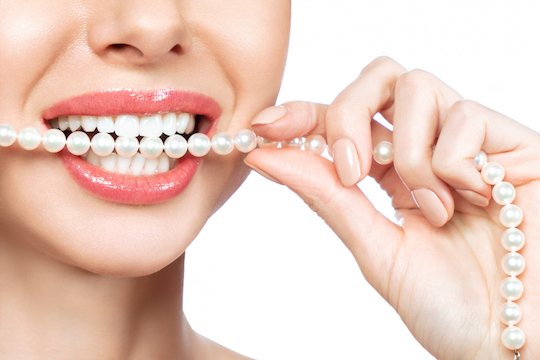When it comes to achieving a perfect smile, veneers have become a popular choice among dental patients in Dubai. However, with the options of composite veneers and traditional porcelain Composite Veneers In Dubai, choosing the right one can be challenging. This article will help you understand the differences between the two, allowing you to make an informed decision.
What Are Veneers?
Veneers are thin shells placed over the front surface of teeth to improve their appearance. They can be used to correct issues like discoloration, gaps, chips, and misalignment. There are two main types of veneers: composite and traditional (porcelain) veneers.

Composite Veneers: An Overview
Composite veneers are made from a composite resin material that is applied directly to the teeth. This type of veneer is often favored for its cost-effectiveness and quick application process.
Advantages of Composite Veneers
Affordability: Composite veneers are typically less expensive than porcelain veneers, making them an attractive option for those on a budget.
Quick Application: The process of applying composite veneers is usually completed in one dental visit. The dentist sculpts the resin material directly onto your teeth.
Reversibility: Composite veneers involve minimal tooth preparation, so they are easier to reverse or repair if needed.
Disadvantages of Composite Veneers
Durability: Composite veneers are less durable than porcelain veneers and are more prone to chipping or staining over time.
Aesthetics: While they can provide a natural look, composite veneers may not match the translucency and shine of porcelain veneers.
Maintenance: Composite veneers may require more frequent maintenance, including polishing or touch-ups.
Traditional Veneers: An Overview
Traditional veneers, also known as porcelain veneers, are custom-made, thin shells crafted from high-quality dental porcelain. These veneers are bonded to the front of the teeth after a small amount of enamel is removed.
Advantages of Traditional Veneers
Aesthetic Appeal: Porcelain veneers are highly regarded for their lifelike appearance, closely resembling natural tooth enamel.
Durability: Porcelain veneers are more durable and resistant to staining, making them a long-lasting solution.
Stain Resistance: Unlike composite veneers, porcelain veneers are resistant to coffee, tea, and other common staining agents.
Disadvantages of Traditional Veneers
Cost: Porcelain veneers are more expensive than composite veneers due to the quality of materials and the lab work required to create them.
Longer Process: The process of getting porcelain veneers typically requires multiple visits to the dentist over a few weeks.
Irreversibility: The application of porcelain veneers involves removing a small amount of enamel from the teeth, making it a more permanent solution.
Comparing Composite Veneers and Traditional Veneers
Cost Considerations in Dubai
In Dubai, the cost of dental treatments can vary significantly based on the clinic and the complexity of the procedure. Composite veneers are generally more affordable, with prices ranging from AED 800 to AED 1,500 per tooth. Traditional veneers can range from AED 2,000 to AED 4,000 per tooth.
Durability and Longevity
If you are looking for a long-term solution, traditional porcelain veneers are the better choice, with a lifespan of 10-15 years or more. Composite veneers, on the other hand, may need replacement or repair within 5-7 years.
Aesthetic Goals
For patients prioritizing the most natural and aesthetically pleasing result, porcelain veneers are superior. They mimic the light-reflecting properties of natural teeth better than composite veneers, which can be an important factor in achieving a seamless smile.
Time Investment
If you need a quick solution, composite veneers are the way to go, as they can often be completed in a single visit. Traditional veneers require more time due to the lab work involved, which can take several weeks.
Which Is Right for You?
Choosing between composite and traditional veneers depends on your specific needs, budget, and aesthetic goals.
Budget-Conscious: If cost is a significant factor, composite veneers may be the more viable option.
Long-Term Investment: If you’re looking for a more durable and aesthetically superior solution, traditional porcelain veneers might be worth the investment.
Quick Fix: If you need an immediate solution and are okay with potential future maintenance, composite veneers are ideal.
Aesthetic Perfection: For those seeking the best possible appearance with minimal maintenance, porcelain veneers are the clear winner.
Finding the Right Dentist in Dubai
To make the best decision, it’s crucial to consult with a qualified cosmetic dentist in Dubai who can assess your specific dental needs and recommend the most suitable option. Dubai is home to many reputable dental clinics offering both composite and traditional veneers, so take the time to research and find a clinic that aligns with your expectations.
Conclusion
Both composite and traditional veneers have their unique advantages and disadvantages. Your choice will depend on factors such as budget, durability, and desired aesthetic results. By understanding the key differences and consulting with a skilled dentist, you can confidently choose the veneer type that best suits your needs in Dubai.
